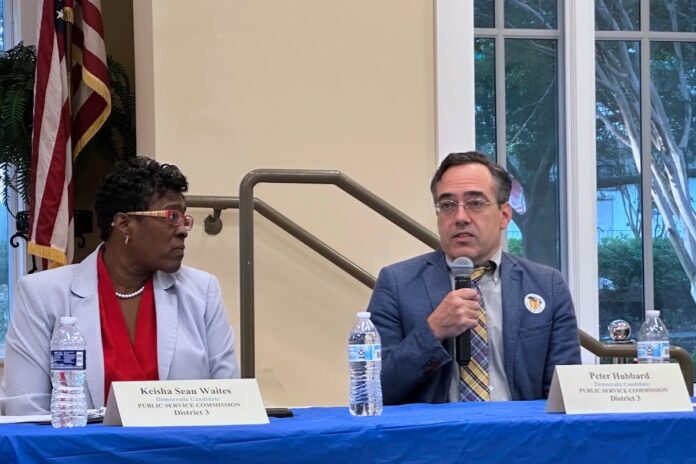Georgia voters have a choice to make in this week’s Public Service Commission (PSC) Democratic runoff, but will they show up to cast ballots?
Early turnout for the primary runoff between Peter Hubbard and Keisha Waites was exceptionally low. According to the Georgia Secretary of State’s
online election hub
, less than half a percent — .4% — of the state’s eligible voters have so far cast ballots in the race. Since it is a primary race, only those who did not vote in the Republican primary are allowed to participate.
Early voting began on Monday, July 7, and ended Friday, July 11.
Low interest, high stakes
Although interest is low, the stakes in this election are high. The five-member regulatory body that Waites and Hubbard are competing to serve on oversees energy, telecommunications, and natural gas in the state. That is why the candidates are working to raise awareness about the race and the powerful role the PSC plays in Georgians’ lives.
“This Public Service Commission is the best kept secret in Georgia,” said Hubbard, a clean energy advocate and founder of the Georgia Center for Energy Solutions. “It is incredibly important. This is the most important election in Georgia this year and will pave the way for how elections will turn out in November of 2026.”
The commission sets utility rates for the state’s largest power provider, Georgia Power, which serves about 2.3 million customers. Utility bills have risen sharply in recent years. While most reports put the average monthly bill at $175 — up $43 since 2022 — Hubbard says the real increase is closer to $52.
But even Georgians who don’t use Georgia Power still feel the impact of the PSC. Electric membership cooperatives (EMCs) and other providers are also affected by the commission’s decisions.
“The Georgia Public Service Commission regulates telecommunications, natural gas, and even pipeline safety,” said Waites, a former state lawmaker and Atlanta city councilwoman. “The policies that it approves shape Georgia’s economy, it shapes our environment, and our long-term energy strategies, which actually impacts everybody.”
Republican incumbents
From climate change and clean energy to data centers and nuclear power, the PSC influences job creation and environmental outcomes. The commission was even involved in a recent legal battle over a Georgia railroad’s attempt to use eminent domain against Black landowners in Hancock County.
However, the winner of Tuesday’s runoff won’t immediately begin shaping those policies. Either Hubbard or Waites will face Republican incumbent Fitz Johnson in the November general election.
Johnson, who was appointed to the PSC in 2022 by Gov. Brian Kemp, is running for election to the seat for the first time. Currently, all five members of the commission are Republicans.
Primary election day is Tuesday, July 15.
GPB News contributed to this report

 by
by 

